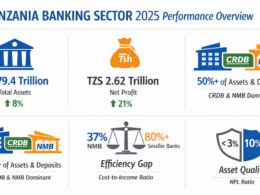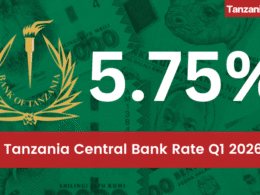The Bank of Tanzania (BOT) has effective from 19th November 2020, taken over and placed under statutory administration China Commercial Bank Limited (CCB).
In its press release signed by the governor Florens Luoga, the central bank explains that the decision to take over and place CCB under statutory administration follows the failure of the bank to meet regulatory requirements regarding capital adequacy.
“Thus, to permit CCB to continue with banking operations while under the state of undercapitalization is detrimental to the interests of depositors and poses a systemic risk to the stability of the financial system,” Luoga explains.
BOT has appointed a Statutory Manager to manage the affairs of CCB and suspended its Board of Directors and Management.
In the premises, China Commercial Bank will not be open for normal business for a period not exceeding 90 days during which BOT will determine an appropriate resolution option.
BOT assures the public that it will continue to protect the interests of depositors and maintain the stability of the banking sector.
CCB was the first Chinese-owned private African bank to operations in Tanzania, in July 2015.
As of 20th November 2020, CCB website cannot be reached.
According to BOT licensing criteria, development finance banks shall maintain at all times a minimum absolute core capital of TZS 50 billion (USD 21.6 million); merchant banks TZS 25 billion (USD 10.8 million); commercial banks, cooperative banks with a nationwide network, and Islamic banks TZS 15 billion (USD 6.5 million); microfinance, and cooperative banks with a regional network TZS 5 billion (USD 2.2 million); and community banks TZS 2 billion (USD 865,000).
Already in 2017, BOT revoked the banking license of Mbinga Community Bank for being critically undercapitalized.
For the same reason, in 2018 BOT closed down five banks, namely Covenant Bank, Efatha Bank, Njombe Community Bank, Kagera Farmers’ Cooperative Bank, and Meru Community Bank.
In May 2020, BOT lowered the Statutory Minimum Reserves (SMR) requirements from 7% to 6% to provide additional liquidity to banks operating in Tanzania and cushion the economy from the adverse effect of Covid-19.











